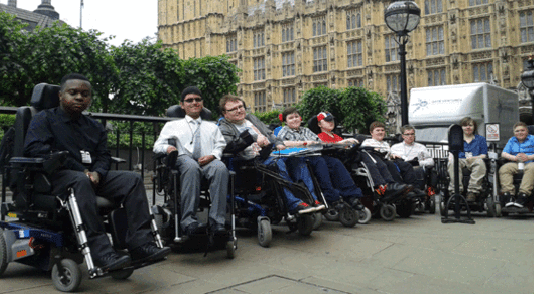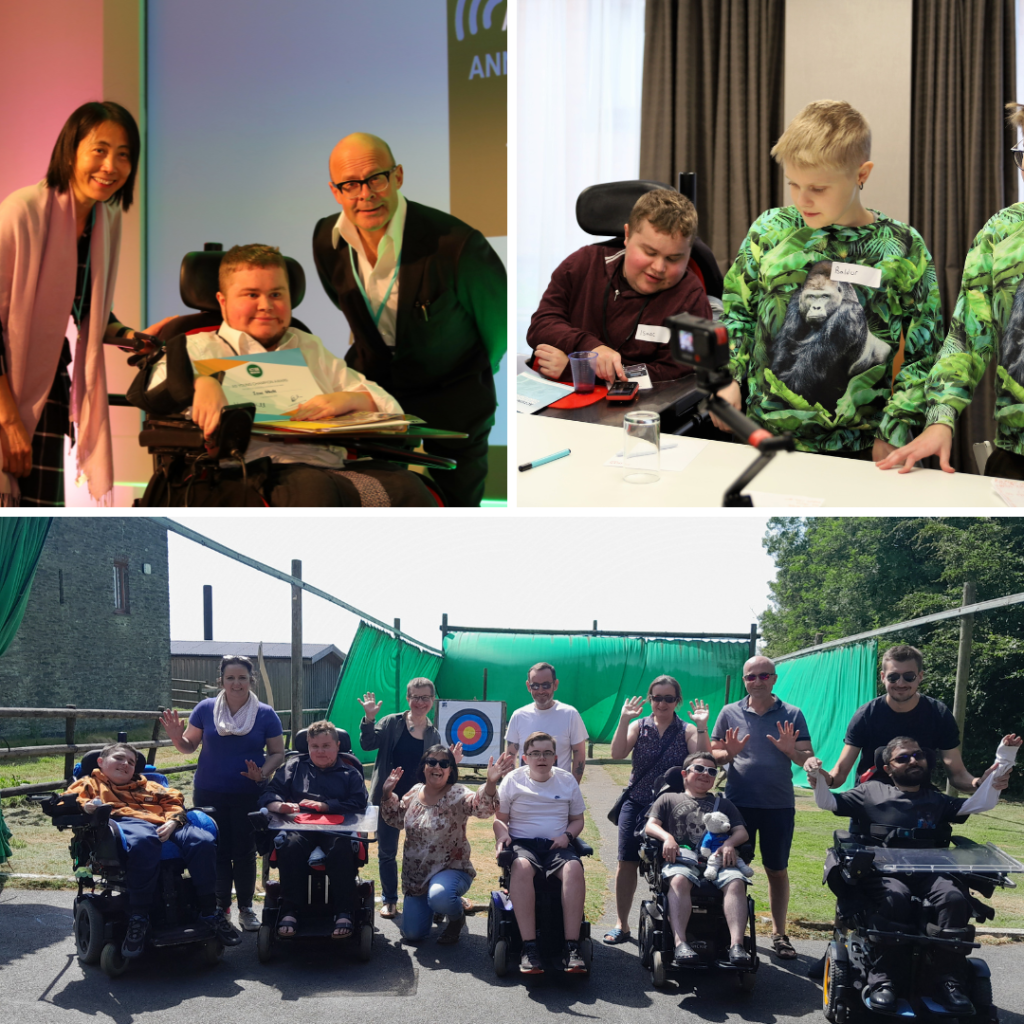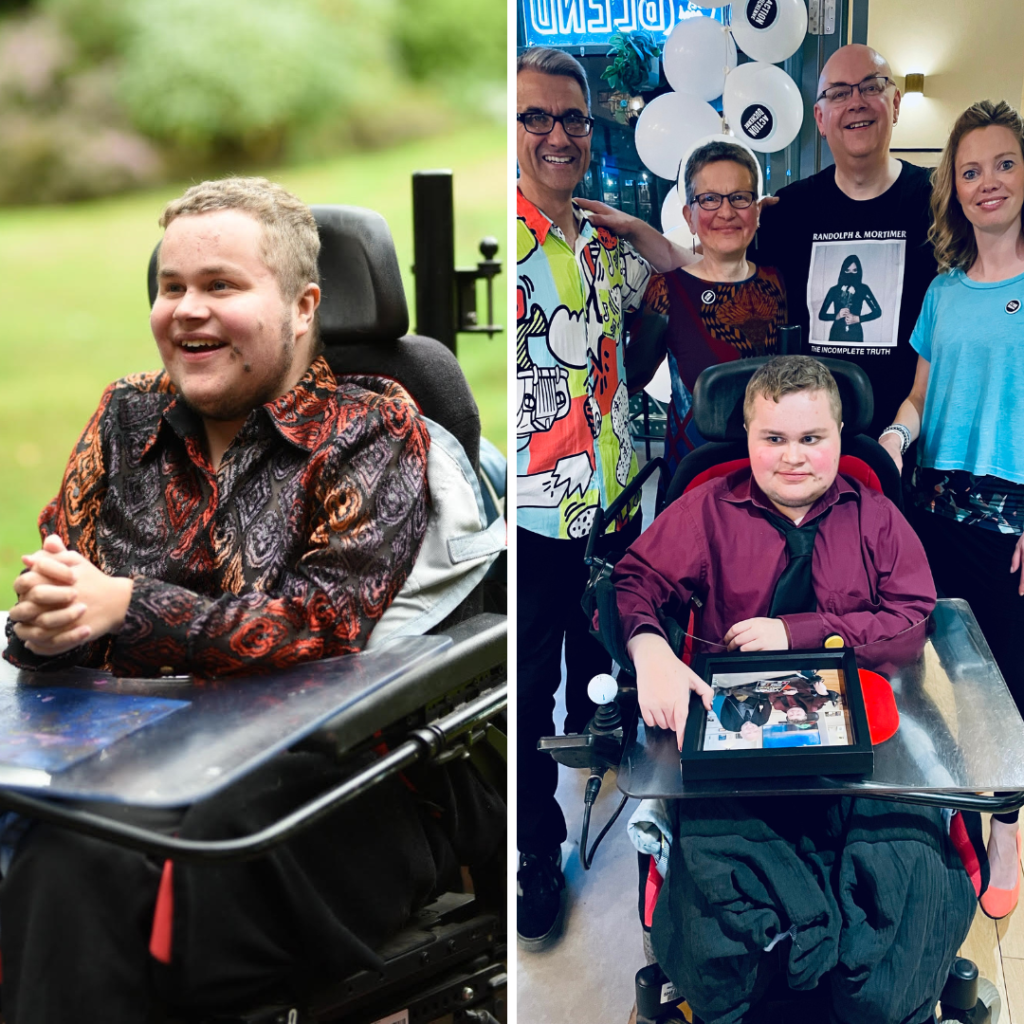Advocacy and Campaigns: using our experience, voice and resources to make change happen
Written by Kathy Wedell

We are pleased to introduce Kathy Wedell’s blog about her experience of advocacy and campaigns with Action Duchenne. Kathy’s son Isaac lives with Duchenne and she speaks about the weight that lived experience carries as evidence and the power of personal experiences in influencing policymakers. Together with the support of Action Duchenne and MDUK, Kathy took an active part in the campaign for Translarna. Her blog delved into broader campaign strategies, including indentifying clear targets, providing solutions for policymakers and leveraging resources for change.
Kathy’s experience is very powerful and we couldn’t help but share it with you.
Since my son Isaac was diagnosed with Duchenne muscular dystrophy aged 4 in 2008, I’ve been campaigning with Action Duchenne, as lead trustee for campaigns and as campaigns officer. In 2022 I was one of three patient experts who gave evidence to NICE when NICE considered whether to recommend the funding of Translarna on the NHS. As a patient organisation we have the power to make change happen – here are my key points both on using our experience and voice and on broader campaign strategies.
Speaking from experience
Our experience is powerful – we can make change happen when we speak from our experience to policymakers. Our voice is crucial for researchers and policymakers, because it provides evidence of the need for change.
Factual information carries weight
We don’t need to emote; it’s factual information about our experience that carries weight as evidence.
Policymakers deal with abstract data – aggregate clinical trial results and algorithms of cost/benefit balances. When we speak from our experience, it makes those abstract points concrete, enabling policymakers to understand the data in the light of the lived experience of patients and their families.
For example, part of the evidence in the Translarna decision was the impact of Translarna on carer quality of life. Both NICE and PTC Therapeutics had complex algorithms to quantify this. To be honest, I couldn’t understand their algorithms. So I provided quantitative information from our experience:
“When our son was able to transfer using a sliding board, rather than a hoist, he was awarded 5 hours per week funded care support… Now that he needs hoisted transfers, he has been awarded 52.5 hours per week … – ten times more care support. Currently our son aged 18 can feed himself, does not need peg feeding, does not need additional ventilation, and is able to shift position in bed during the night and meet his own toileting needs overnight. If he did need this additiona support, he would need 24/7 care support – 168 hours per week.”
Significant details have huge impact
Evidence from our experience can flag up easily overlooked details which have a huge impact on quality of life. Two examples from my evidence to NICE:
“Thanks to ataluren, my son is able to look back on years of meaningful daily experiences of inclusion, for example going to the playground after school with other children and going round to friends’ houses. He can draw on years of being out in the natural world, with all of its well-known psychological benefits. Just yesterday we were recalling a walk in the hills when we went wild swimming by a waterfall. Extra years of ambulation made possible that psychological foundation of inclusion and being out in the natural world and… have had a lasting impact on his self-esteem and wellbeing.”

“As a teenager, if you can sit on the sofa with someone and hang out and a friends house, you are at significant psycho-social advantage in comparison with someone who uses a powered wheelchair full time. Friends don’t invite you to their houses if they know you can’t get in, and without such social opportunities friendships and potential relationships and the foundational emotional wellbeing that they provide, are in danger of falling away.“
Cost/Benefit analysis
Policymakers and funders think in terms of cost/benefit analysis. As patients and families we need to prove both the benefit of the treatment or service to us and also what the cost is of not providing it. That includes the cost to the NHS and Social Care and the economic cost to the UK both of unfulfilled potential and of lack of investment in the UK genomics industry. Cost also raises questions of equality and discrimination – treatments for rare conditions are proportionally more expensive and the benefits are harder to quantify in clinical trials, due to small population sizes. If policy makers decide against funding them, that disproportionately disadvantages people living with rare conditions.

Broader Campaign Strategies
Identify SMART target to campaign on
Choose a clear and measurable target. For example, in 2014 the Takin’ Charge group campaigned to extend EHC Plans to students with physical additional needs but not learning disabilities. They met their MPs for tea in the House of Commons and asked them to support specific changes to the proposed legislation.
Provide the solution for policy makers
Action Duchenne had long flagged up the problem of the postcode lottery in access to specialist centres for DMD care and clinical trials and had lobbied government to address this problem. In 2015 we turned the campaign around; we simply identified the most advanced DMD centre in each region and consulted with them to find out what they needed to increase their capacity to run clinical trials.
Action Duchenne provided seed funding for a clinical trial research physiotherapist for two years at Bristol. The Bristol service was then able to secure long-term funding, ending a catch-22 situation of not being able to run clinical trials because they lacked funding, and not attracting the funding because they were not running clinical trials.
(Personally, this meant a lot to me: the son of a childhood friend, living with DMD in the southwest, had died aged 17 in the early 2000s having had no treatment at all. For me, the Bristol post was in memory of Harry.)
Activate our resources and power to leverage change
The question is not ‘what do we want ‘them’ to do?’ but ‘how can we leverage change?’ Providing seed funding is one way; another is people power. The Takin’ Charge group created impact by filling a House of Commons room with young people in powered wheelchairs talking about their experience and aspirations. MPs commented afterwards on the power of this encounter and its impact on their understanding.
Relationships precede action
Picking up the phone, meeting for coffee, chats at the bar: human connections are at the heart of making change happen. The Takin’ Charge group made human connections with their MPs over tea. AD worked with our partners in what became Duchenne UK to increase clinical trial capacity. Action Duchenne’s two patient experts worked closely with MDUK’s Director of Care, Campaigns, and Support on the NICE Translarna consultation in 2022. One of the strengths of NICE’s drug regulatory process is that it allows patient experts to speak directly to the deciding committee.
Thank you for sharing your story.
Action Duchenne is thriving to support every family in their journey. And we continue to actively drive
forward our campaigning work on potential treatments and therapies.
If you would like to read more about how we advocate for access to the best possible available
treatment to the Duchenne community follow this link.


